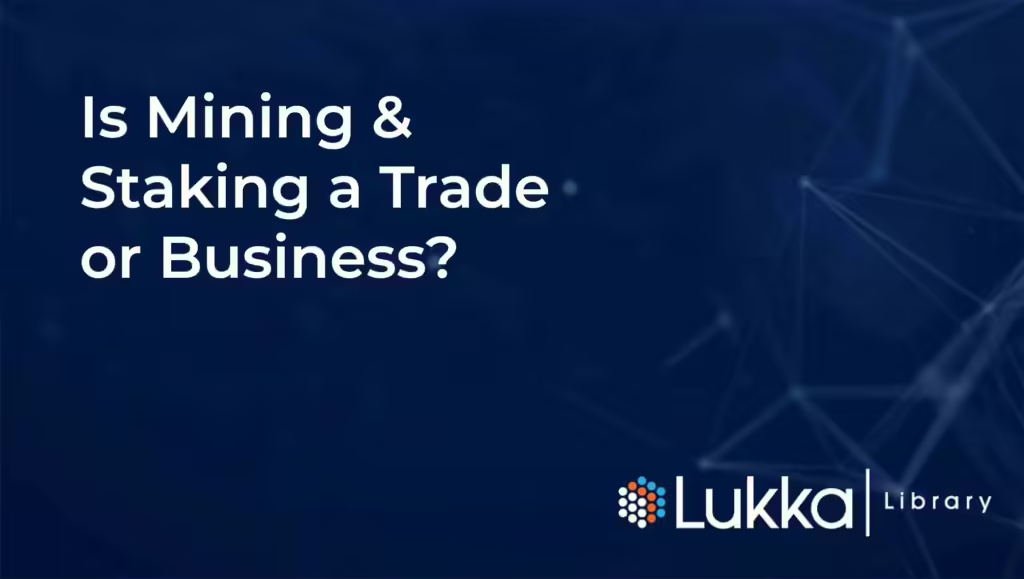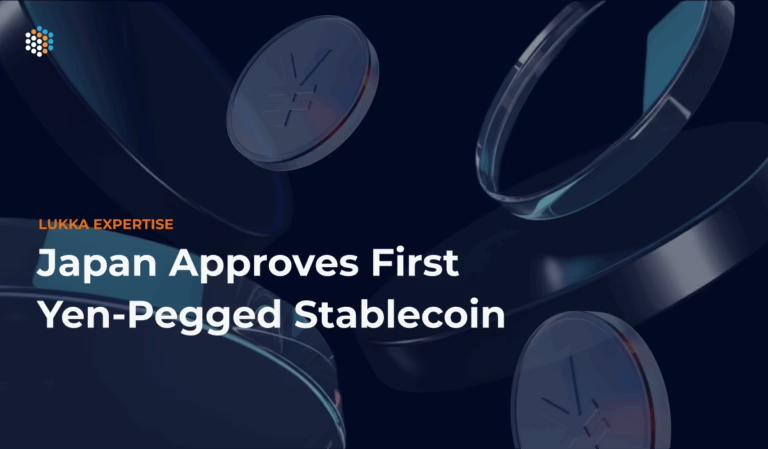Author: David Shakow, Professor Emeritus, University of Pennsylvania School of Law1
The discussion in this document reflect legal principles as of January 20, 2020.
The IRS has announced that miners of cryptocurrencies like Bitcoin may be engaged in a trade or business. Unfortunately, there is no guidance from the IRS that would explain how it will be determined whether or not miners are in fact engaged in a trade or business.
Determining whether an activity rises to the level of a trade or business is not easy where, as here, there are not many analogies to decided cases. The Supreme Court has held that a person engaged in investment activities will not be treated as having a trade or business, even though the person’s investment activities involve the hiring of a number of full-time employees. Thus, the level of activity engaged in, even if extensive, does not guarantee that the taxpayer will be treated as engaged in a trade or business.
Someone owning real estate that is subject to a triple net lease will not be treated as engaged in a trade or business (although the real estate operation itself clearly constitutes a trade or business), because of the relatively little amount of day-to-day activity that the person needs to devote to its real estate ownership. However, if the person’s involvement with the business is more active than an ownership of triple net leased real estate, and includes, for example, active provision of services to those using the real estate, a person involved with those additional activities will be deemed to be engaged in a trade or business.
Applying this learning to a Bitcoin miner does not lead to a clear answer, supporting the unease of the IRS in expressing a clear conclusion on this issue. However, there would seem to be a good argument that the miner is engaged in a trade or business, to the extent the miner must maintain its hardware in good working order, pay bills for electricity and for those servicing the equipment, and keeping its software up to date. Assuming this activity is conducted by the miner and its employees, it is probably reasonable to take the position that the miner is engaged in a trade or business.
But what about those who join a mining pool but are not primarily engaged in running it? They presumably are less involved with day-to-day operations of the mining pool. However, they cannot sit back and do nothing like an investor. They must continue to maintain their computers and must themselves pay the bills for the electricity needed to run those computers. As long as they have an ongoing obligation that involves actual activity on their part, there would seem to be an argument that they could assert that they are engaged in a trade or business, although the IRS could challenge that.
Do the same considerations apply when the blockchain is conducted using a proof of stake protocol rather than a proof of work protocol? The active validators who must keep connected to the Internet and maintain their computers on a continuous basis are probably in the same position as the miners operating in any proof of work environment, and would likely be treated as engaged in a trade or business.
However, those who delegate their stakes to the active validators may be in a weaker position than those who join a mining pool in a proof of work context. Normally, those delegators simply allow the validators to make use of their stakes in order to increase the validator’s chance to be called upon to validate transactions. But, once they have designated their stake, these delegator’s have no ongoing obligation. They simply collect a portion of the fees granted to the validators to whom they have delegated their stake – much like a lessor in a triple net lease. This may make it harder to assert that they are engaged in a trade or business.
When all those involved in a pool can be treated as engaged in a trade or business, they may well be considered to be acting as a partnership. In the proof of stake environment, where delegators’ activities may not rise to the level of a trade or business, the question of whether a partnership has been created is particularly important. If there is a partnership, that itself is engaged in a trade or business, the delegators will have the consequences of the trade or business designation.
What difference does it make if those involved are treated as engaged in a trade or business? For anyone deemed not to be engaged in trade or business, the result could be that they cannot offset any income they earn with the related expenses, since Congress has significantly limited the expenses that can be taken by those not engaged in a trade or business. This would be particularly troubling for those who have joined a mining pool in a proof of work environment, since there would be significant costs, for electricity as well as for software, expenses that could not be used to offset the income that is earned.
Separately, one will have to consider the potential application of self-employment taxes, as well as the issue of whether the trade or business causes a taxpayer to be subject to tax outside of their state or country of residence. Some states also have taxes that can apply to unincorporated entities.
1 The statements in this paper represent the views of the author only and should not be attributed to the University of Pennsylvania School of Law. Further, this document should not be treated as legal advice to any reader or to Lukka.



